TB-500 has been shown to increase training recovery, healing, and injury protection in virtually all human and animal cells. Thymosin Beta-4 (TB-500) has been described in studies as a naturally occurring, regenerative protein peptide which is found in almost all tissues and cell types. TB-500 improve tissue repair. TB 500 have shown in studies that it greatly improve the healing of muscle, tendon, ligament, joint, and bone injuries. TB 500 also reduces inflammation and improves and maintains flexibility, especially in connective tissues.
Usage
This product is intended for research purposes only and is not approved for human or veterinary use. The information provided is for informational purposes only and should not be considered as medical advice or endorsement of any treatment or therapy. Consult with a healthcare professional before using any peptide for therapeutic purposes.
Storage
Protein peptides should be stored at recommended temperatures, typically between -20°C and -80°C, to maintain their stability. Avoid repeated freeze-thaw cycles, as they can lead to peptide degradation. Keep peptides in a dry environment to prevent moisture absorption, and protect them from direct light by storing them in opaque or amber-colored containers. Minimize the risk of contamination by handling peptides in a sterile environment and sealing vials or containers properly. Consider dividing peptides into smaller aliquots for single-use to avoid repeated thawing. Always follow the specific storage instructions provided by the manufacturer or supplier for optimal peptide preservation.
Key Features:
- Purity: Exceeds 99% as confirmed by High-Performance Liquid Chromatography (HPLC) and Mass Spectrometry (MS).
- Available Dosages: Offered in lyophilized powder form in 12mg, 10mg, and 5mg vials.
- Molecular Composition: C₁₀₁H₁₆₆N₂₂O₂₉.
- Formulation: Provided as a sterile, white lyophilized powder without additives.
Research Applications:
TB-500 has been the focus of numerous studies due to its potential roles in:
- Cell Migration: Facilitates the movement of cells, which is crucial for tissue development and repair.
- Angiogenesis: Promotes the formation of new blood vessels from pre-existing ones, aiding in improved blood supply.
- Inflammation Modulation: May assist in regulating inflammatory responses, contributing to enhanced healing processes.
- Tissue Regeneration: Supports the repair and regeneration of various tissues, including muscle and skin.
Storage Guidelines:
- Lyophilized Form: Stable at room temperature for 3-4 weeks. For prolonged storage, keep desiccated below -18°C.
- Reconstituted Solution: Once reconstituted with sterile water, store at 4°C and use within 10-14 days for optimal stability. Avoid repeated freeze-thaw cycles to maintain peptide integrity.
Reconstitution Recommendations:
It is advisable to reconstitute the lyophilized TB-500 in sterile water. This solution can then be further diluted as required for specific research applications.
frequently asked questions (FAQs) about Thymosin Beta-4 (TB-500):
1. What is TB-500?
TB-500 is a synthetic peptide that mimics Thymosin Beta-4, a naturally occurring protein in the body involved in tissue repair, inflammation control, and cellular regeneration.
2. How does TB-500 work?
TB-500 works by modulating inflammation, stimulating cell migration, promoting angiogenesis (new blood vessel formation), and enhancing collagen production.
3. What are the potential benefits of TB-500?
Potential benefits include accelerated healing of injuries (muscles, tendons, ligaments), reduced inflammation, improved flexibility, and enhanced tissue regeneration.
4. Is TB-500 approved for human use?
TB-500 is not approved by the U.S. Food and Drug Administration (FDA) for any medical use in humans. This means it hasn’t undergone the rigorous testing required to ensure its safety and efficacy.
5. Are there any known side effects of TB-500?
Some individuals may experience mild side effects such as fatigue, dizziness, redness or irritation at the injection site, and temporary headaches. However, research is limited, and more studies are needed to fully understand its safety profile.
6. How is TB-500 administered?
TB-500 is typically administered via subcutaneous injection. Dosage and administration protocols can vary, so it’s essential to consult with a healthcare professional before use.
7. Can TB-500 be used for chronic conditions?
TB-500 has been explored for its potential in addressing chronic conditions involving inflammation and tissue degeneration. However, its efficacy and safety for long-term use have not been conclusively established.
8. Is TB-500 legal to purchase?
The legality of purchasing TB-500 varies by country. In many regions, it is available for research purposes only and not approved for human consumption. It’s crucial to be aware of and comply with local regulations.
9. How should TB-500 be stored?
Lyophilized (freeze-dried) TB-500 should be stored at room temperature for up to 3-4 weeks. For extended storage, it should be kept desiccated below -18°C. Once reconstituted, it should be stored at 4°C and used within 10-14 days.
10. Can TB-500 be used in combination with other peptides?
Some protocols combine TB-500 with other peptides like BPC-157 for synergistic effects on healing and recovery. However, combining peptides should only be done under the guidance of a knowledgeable healthcare provider.
11. Where can I find more information about TB-500?
For a comprehensive overview of TB-500, including its uses, benefits, and safety considerations, you can refer to the following resource:
12. Are there any clinical trials involving TB-500?
As of now, TB-500 is still undergoing clinical trials and is not yet approved for medical use in humans.
13. How does TB-500 differ from Thymosin Beta-4?
TB-500 is a synthetic derivative of Thymosin Beta-4, containing an actin-binding domain that helps regulate cell structure and function. While both have similar properties, Thymosin Beta-4 has a broader range of effects due to additional active domains.
14. Can TB-500 promote hair growth?
Research indicates that TB-500 may accelerate hair growth by promoting cell migration and blood vessel formation. However, more studies are needed to confirm its efficacy in this area.
15. Is TB-500 used in veterinary medicine?
TB-500 has been marketed for use in horses and other mammals to promote muscle growth and tissue repair. However, its use in veterinary medicine is not universally approved and should be approached with caution.
Please note that TB-500 is a research chemical, and its use should be limited to scientific and clinical research purposes. Always consult with a qualified healthcare professional before considering its use.
| Quantity | 2mg * 10 vials, 5mg * 10 vials, 10mg * 10 vials |
|---|
6 reviews for Thymosin Beta-4 (TB-500) 12mg | 5mg | 10mg
Add a review Cancel reply
Related products
Melanotan Peptides
Melanotan Peptides
Melanotan Peptides
Melanotan Peptides

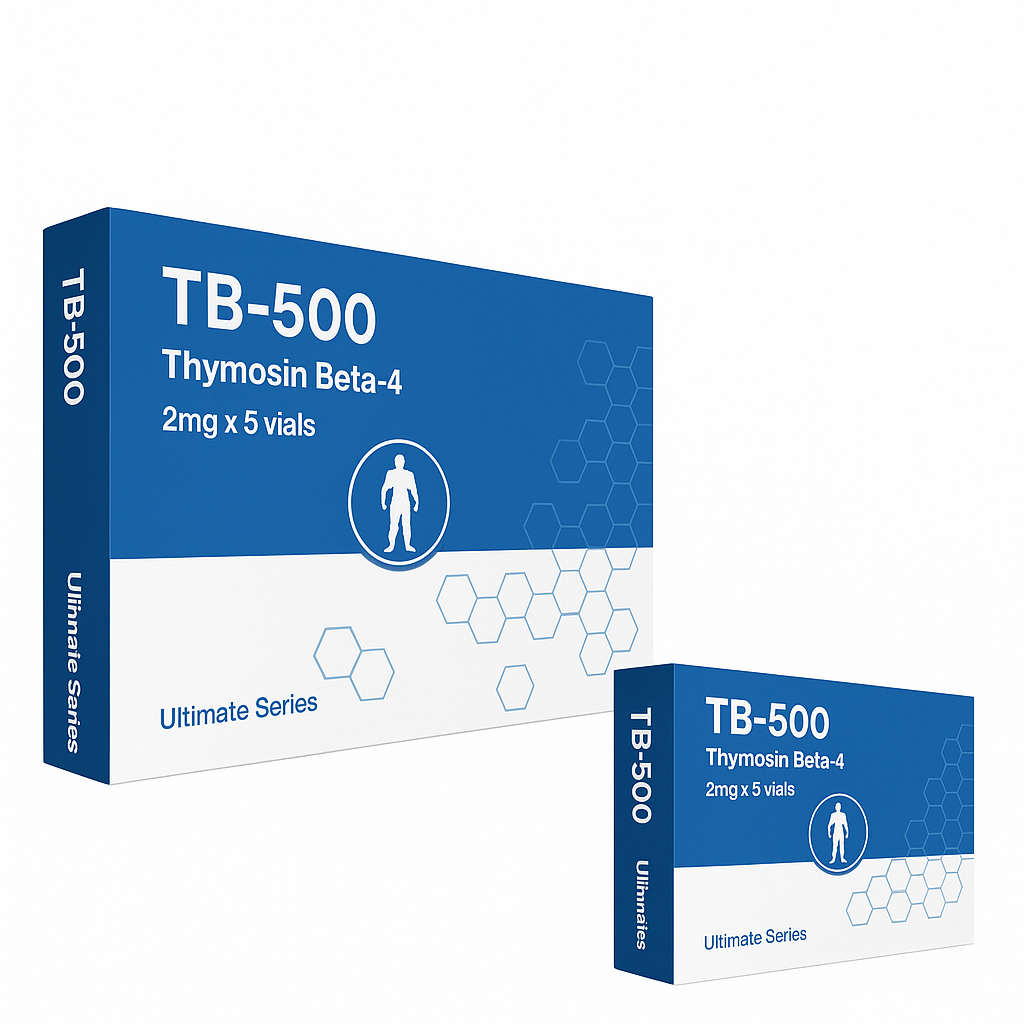
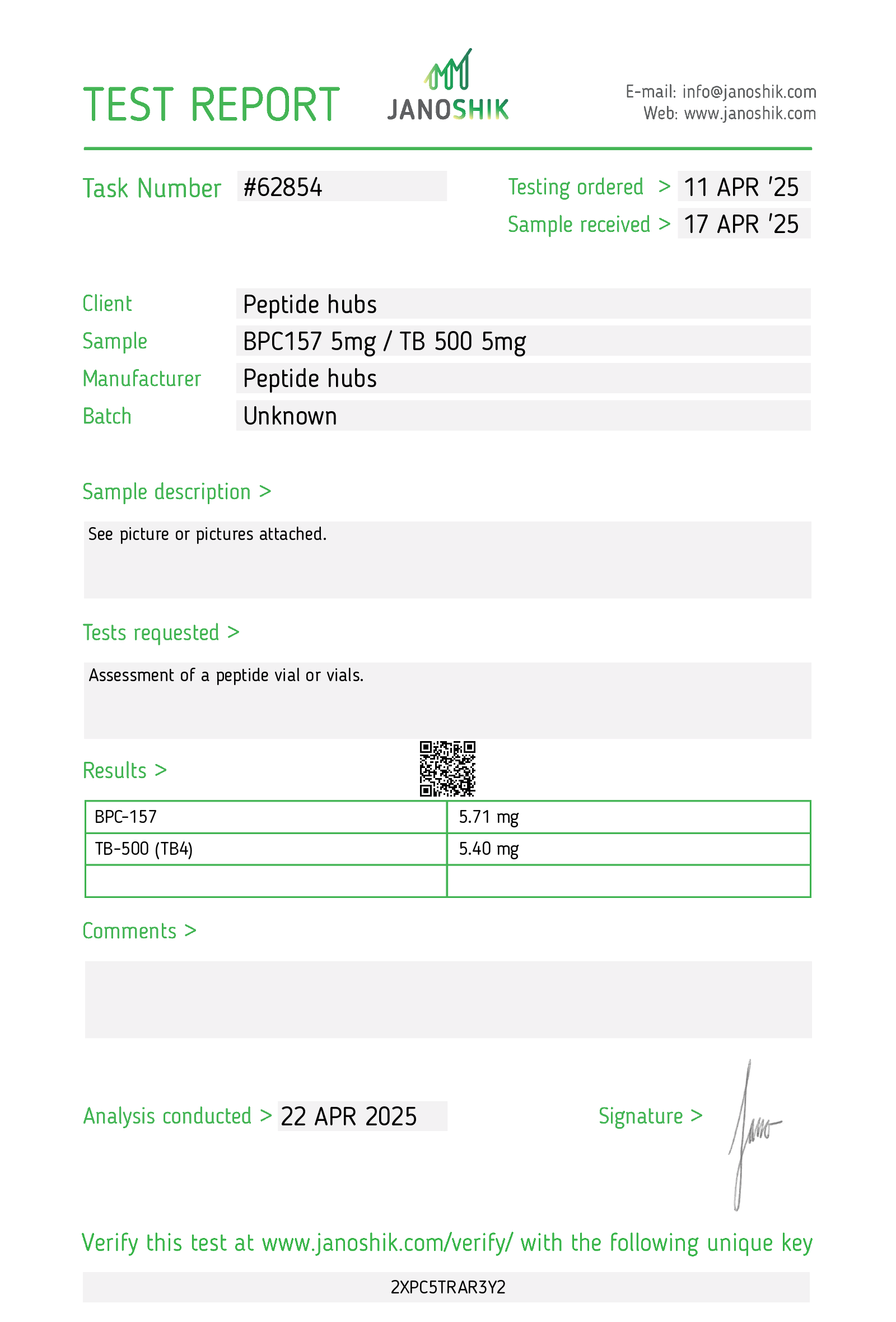
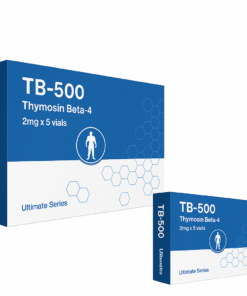
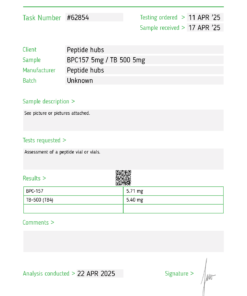




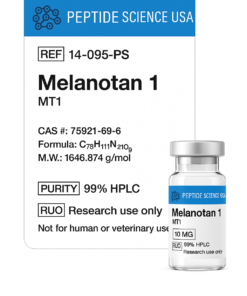

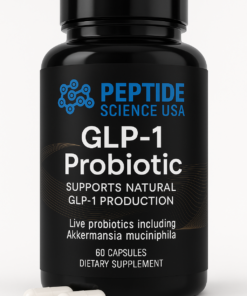

Jake Matthews –
Helped me recover from an old shoulder injury faster than expected. Lifesaver!
Michelle Dorsey –
I used the 10mg dose post-surgery, and healing was noticeably faster. My doctor was surprised.
Chris Henson –
I’ve tried a few TB-500 sources, and this one is by far the cleanest and most effective.
Natalie Brooks –
Used the 5mg vials over 4 weeks and saw a big improvement in joint inflammation. Solid product.
Eric Sanders –
Excellent results with soft tissue healing. Worth every penny for athletes in recovery
Billy jane –
12mg vial lasted me 3 full weeks. Felt smoother recovery and my nagging rotator cuff issues started easing up. TB500 is now a must in my stack.